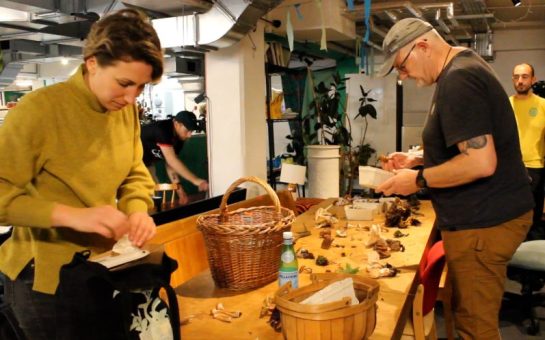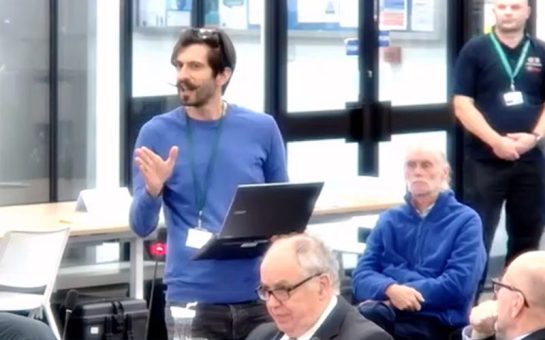By Mimi Swaby
August 13 2020, 13.00
Follow @SW_Londoner
Sanitary products can consist of up to 90% plastic, having devastating environmental and unknown health implications and campaigners are calling for a change to the way these products are made.
The monthly necessity of these single-use products means the volume required is vast with the average woman using between 10,000 to 12,000 in their lifetime.
In the UK, period products contribute to 200,000 tonnes of landfill waste and researchers estimate a single tampon can take up to 600 years to biodegrade.
The ‘End Period Plastic’ campaign founder Ella Daish, 27, said: “In the plastic pollution conversation many people don’t consider the hidden plastic in period products.”
The campaign, initiated in 2018, calls on retailers and manufacturers to remove plastic from their products to help combat plastic pollution.
In addition to landfill, an estimated 1.5 to 2 billion sanitary items are flushed down Britain’s toilets each year, entering our ocean systems.
This equates to 2.5 million tampons, 1.4 million pads and 700 thousand pantyliners being incorrectly flushed down UK toilets every day.
Nearly half of women consider flushing tampons the normal method of disposal, Anglian Water’s recent study revealed.
Sanitary products are the fifth most common item found on Europe’s beaches, the European Commission revealed, and in the top 20 most found items on US coastlines, according to the Centre for International Environmental Law.
Miss Daish said: “It unquestionably shows the huge global environmental problem.”
The response from brands and manufacturers has differed greatly.
She said: “Some are open to talking about the problem but others are very closed saying that plastic is what women want.”
Sainsbury’s, Aldi and Superdrug have now stopped the production of their plastic tampon applicators.
Miss Daish commented: “They recognised it as an unnecessary use of plastic.”
This action collectively saves more than 17 tonnes of plastic annually.
However, switching to a cardboard applicator does not mean a plastic free period as most tampons have a polyester veil around them to stop their fibres from shedding.
Lil-Lets, Superdrug and Morrisons responded to the campaign by developing their own eco-friendly ranges.
Miss Daish added: “When one retailer moves away from plastic, it prompts others to follow.
“It’s brilliant these options are more accessible but retailers need to do more than just bring out more ranges, they need to change the way they are making all the ranges”.
She noted brands often push the responsibility onto consumers but they should be held accountable for their environmental impact and put profit into making their products more sustainable.
Miss Daish commended the increase in more sustainable period products as choice is vital given one option will not suit all.
One of the latest reusable sanitary products is the period pant – the original by Modibodi.
Modibodi period pants are worn without a pad or tampon meaning the switch significantly reduces the amount of disposable products ending up in landfill.
Modibodi marketing and customer experience director Liana Lorenzato said: “In the last few years the market for period pants has exploded with more and more people making the switch.”
To date, Modibodi customers have prevented more than three million bags of disposable sanitary waste entering landfill or being flushed into water systems.
Mrs Lorenzato said: “Having a positive effect on the environment really is as simple as changing your underwear.”
From a health perspective, tampons carry a small risk of Toxic Shock Syndrome (TSS) if worn too long, and can be irritating to sensitive skin.
Increasing evidence also indicates that for those who suffer with Endometriosis tampons or cups can cause severe cramps.
Mrs Lorenzato said: “There’s not only a lower risk of bacterial infection but it’s all over kinder to our bodies to simply slip on some soft undies and not have to worry about TSS, cramps or leaks.”
She added: “The market of reusables has so much more opportunity to grow as people start to recognise their environmental impact and want to make a change for the better.”




